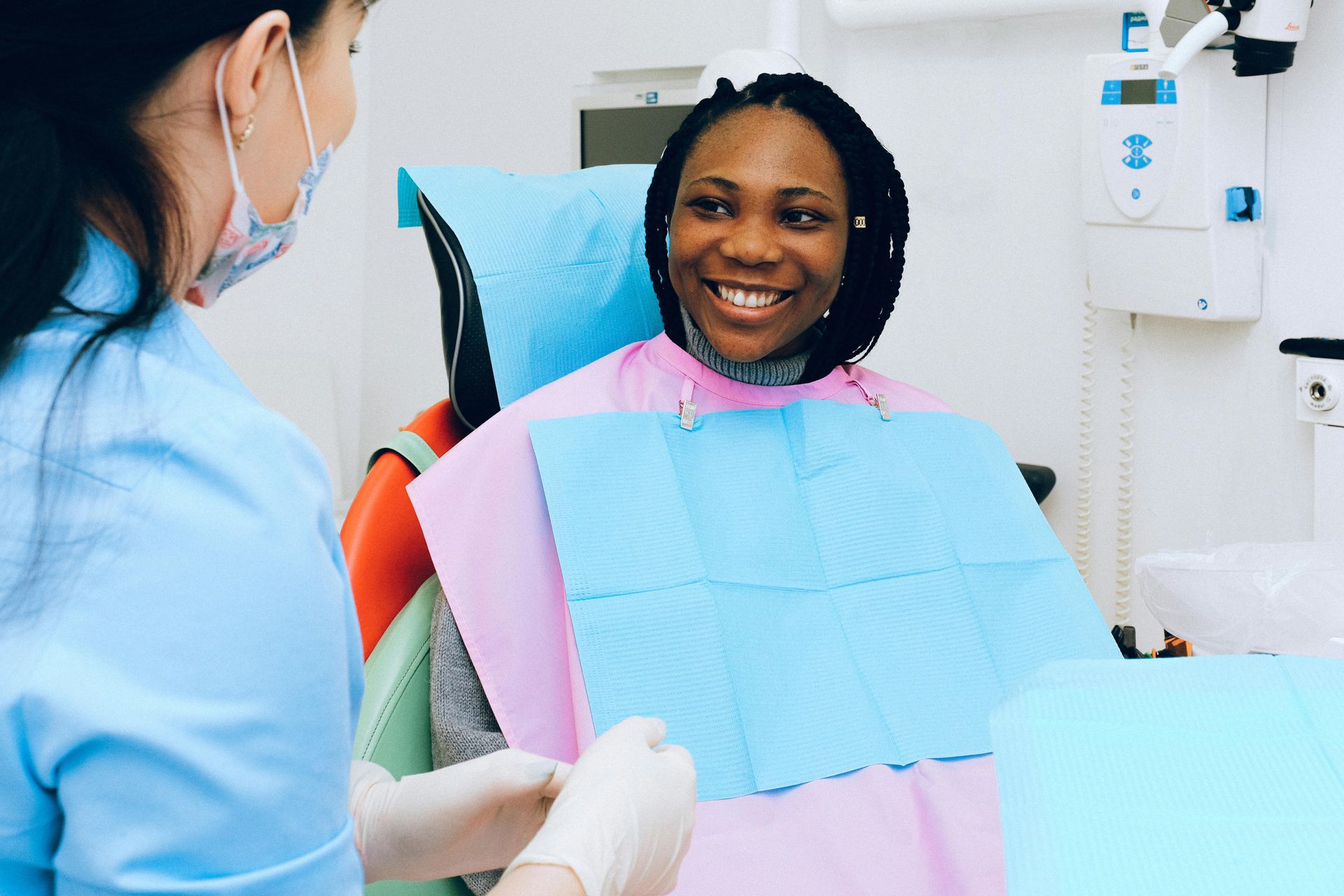March 4, 2025
Cosmetic dentistry continues to evolve, offering new ways for Evanston residents to enhance their smiles and, in turn, boost their self-confidence. Not only do these solutions address issues like stains, chips, and misalignment, but they can also provide an emotional uplift by helping people feel more comfortable speaking and laughing in social settings. As technology and techniques advance, many individuals are discovering that achieving a radiant smile is both accessible and rewarding. Below, we explore the latest trends in cosmetic dentistry and how they are making a positive impact in Evanston. The Growing Popularity of Teeth Whitening Teeth whitening remains one of the most sought-after cosmetic dentistry treatments today. According to the American Academy of Cosmetic Dentistry , teeth whitening procedures account for a considerable portion of cosmetic dental treatments performed in the United States. Demand in Evanston is no exception—residents often look for ways to brighten their smiles, whether it’s for a special event or simply to feel more confident in everyday life. A common misconception is that all whitening treatments are essentially the same. However, technological advances have yielded various methods, ranging from at-home whitening kits to professional in-office treatments. In a dental office environment, the use of professional-grade whitening agents can help achieve more consistent and longer-lasting results. Most dentists also offer custom-made trays that ensure comfort while minimizing gum irritation, making the entire whitening process more pleasant and effective. Those who prefer a slower approach often opt for take-home trays in conjunction with in-office consultations, balancing convenience with professional guidance. Achieving Glamorous Smiles With Veneers and Bonding Another fast-growing trend in the field is the application of veneers and bonding. These techniques are particularly popular among those looking to cover chipped, misshapen, or severely stained teeth. Veneers—thin porcelain shells custom-made to fit over the surface of teeth—can dramatically transform a smile’s aesthetics. What’s more, newer generations of porcelain materials often replicate the translucent qualities of natural teeth for a more authentic appearance. Bonding, on the other hand, relies on tooth-colored resin to fix minor imperfections like small gaps or cracks. It can be an ideal solution for individuals who prefer a less invasive approach or have budget considerations in mind. Because bonding typically requires fewer visits and less enamel reduction, it can be a quick option for those who want to refresh their smiles in a shorter timeframe. Regardless of the chosen method, both veneers and bonding can rejuvenate a person’s overall appearance and produce results that are imperceptibly similar to real tooth enamel. Modern Orthodontics for All Ages Gone are the days when orthodontics was reserved for children and adolescents. Advances in braces and aligner technology have made it easier for people of all ages to achieve straighter teeth. The American Association of Orthodontists cites an increase in adult orthodontic patients over recent years, indicating that it’s never too late to tackle mild to moderate alignment issues. Clear aligners, in particular, have gained considerable traction, appealing to adults in Evanston who value discretion. These transparent trays gradually shift teeth into their desired positions with minimal impact on day-to-day activities. They’re removable, simplifying oral hygiene and mealtimes. Many patients find the flexibility and near-invisibility of aligners an attractive alternative to traditional braces. Whether you opt for clear aligners or other contemporary orthodontic solutions, the outcome often extends beyond a straight smile, contributing to improved bite function and overall oral health. The Psychological Benefits of a Confident Smile Cosmetic dentistry doesn’t just enhance a person’s physical appearance—it can significantly influence emotional well-being as well. Confidence in one’s smile often translates to greater poise in personal relationships and professional settings. Simple actions like talking, laughing, and taking photographs become enjoyable rather than anxiety-inducing. Academic research on the connection between oral health and self-esteem consistently highlights how a healthy smile can serve as an emotional anchor, promoting a positive self-image. This is especially relevant in communities like Evanston, where social ties are strong, and occasions to connect with neighbors, colleagues, and friends are frequent. Beyond aesthetics, cosmetic treatments can motivate patients to adopt healthier daily hygiene habits. Many individuals who invest in whitening or orthodontics take proactive steps to maintain their results, such as improving brushing techniques or scheduling professional cleanings more regularly. This ripple effect often benefits overall oral health, reducing cavity rates and lowering the risk of gum disease. Embracing Evanston’s Unique Dental Culture Evanston’s local community places a high value on health and wellness, and cosmetic dentistry aligns well with these priorities. Many local dentists focus on patient education, ensuring that anyone considering a cosmetic procedure understands the process, potential benefits, and realistic outcomes. Because Evanston is part of the larger NorthShore region, residents often share resources and recommendations with neighboring communities, creating a collaborative environment for exploring new cosmetic dental options. Word-of-mouth testimonials, especially in a close-knit town, can influence someone’s choice of treatment. While it’s important to weigh professional opinions, peer recommendations often provide additional reassurance for those unsure about committing to a cosmetic dental procedure. Fortunately, Evanston’s healthcare culture holds trusted relationships in high regard, making it a place where residents can feel comfortable discussing their concerns and goals with their dentists. Ready to Transform Your Smile? Cosmetic dentistry has moved far beyond mere appearance-driven procedures; it’s about investing in your well-being and presenting your best self to the world. Whether you’re considering teeth whitening, veneers, bonding, or advanced orthodontics, there’s an approach designed to meet your unique needs as an Evanston resident. If you’re looking to explore the best cosmetic dentistry options for your smile, contact us at Stephens Dentistry. Our team provides individualized guidance tailored to your goals, ensuring that every step you take toward enhancing your smile aligns with your comfort and values. For more insights into other dental services, take a look at our services pages and learn how you can keep your teeth healthy, bright, and ready to shine in Evanston.







